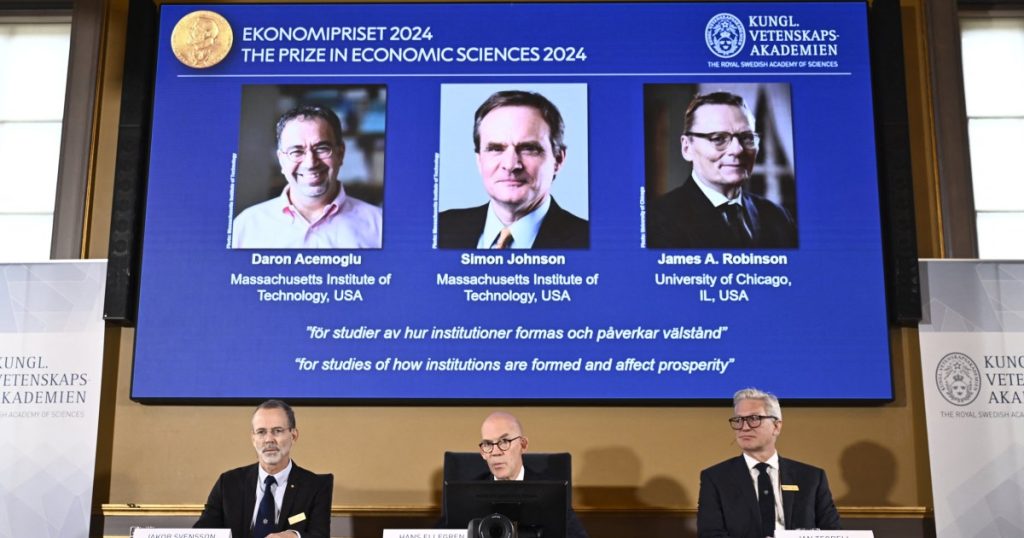Three U.S.-based academics were awarded the 2024 Nobel economics prize for their research on global inequality, specifically in countries plagued by corruption and dictatorship. Simon Johnson, James Robinson, and Daron Acemoglu were recognized for their work on how institutions are formed and impact prosperity. The laureates emphasized the importance of societal institutions in reducing income disparities between countries, highlighting the historical roots of weak institutional environments in many low-income nations. This recognition comes in the wake of a World Bank report showing that the world’s 26 poorest countries are facing increased debt levels, presenting a setback in the fight against poverty.
The prestigious award, formally known as the Sveriges Riksbank Prize in Economic Sciences in Memory of Alfred Nobel, is valued at 11 million Swedish crowns. Acemoglu, one of the laureates, emphasized the weakening of public institutions and the rule of law globally, calling for a reclaiming of better governance and democracy. The academics, who work at Massachusetts Institute of Technology and the University of Chicago, have recently collaborated on a book examining technology’s impact on job creation and wealth distribution. The Nobel economics prize, established in 1968 by Sweden’s central bank, is a later addition to the original awards organized by Alfred Nobel.
Research into inequality has been a prevalent theme for recent Nobel economics prizes. Last year’s winner, Claudia Goldin, focused on wage and labor market disparities between men and women, while researchers Abhijit Banerjee, Esther Duflo, and Michael Kremer won in 2019 for work on poverty alleviation. The economics prize has historically been dominated by U.S. academics, with the 2024 laureates joining a long list of influential thinkers who have received the award since its inception in 1901. The U.S. has also seen success in other scientific fields, with American researchers claiming a substantial number of this year’s laureates announced in various disciplines.
The impact of technological advances on job creation and wealth distribution was highlighted in the research by the awarded academics, underscoring the importance of innovation in addressing global inequality. The laureates’ work sheds light on the factors influencing prosperity and economic development in countries facing challenges such as corruption and autocracy. As the world continues to grapple with widening income gaps and deepening poverty, the insights provided by these academics are crucial in shaping policies and strategies to promote more inclusive and equitable societies. The Nobel economics prize serves as a reminder of the ongoing efforts to address pressing economic issues and drive positive change on a global scale.


